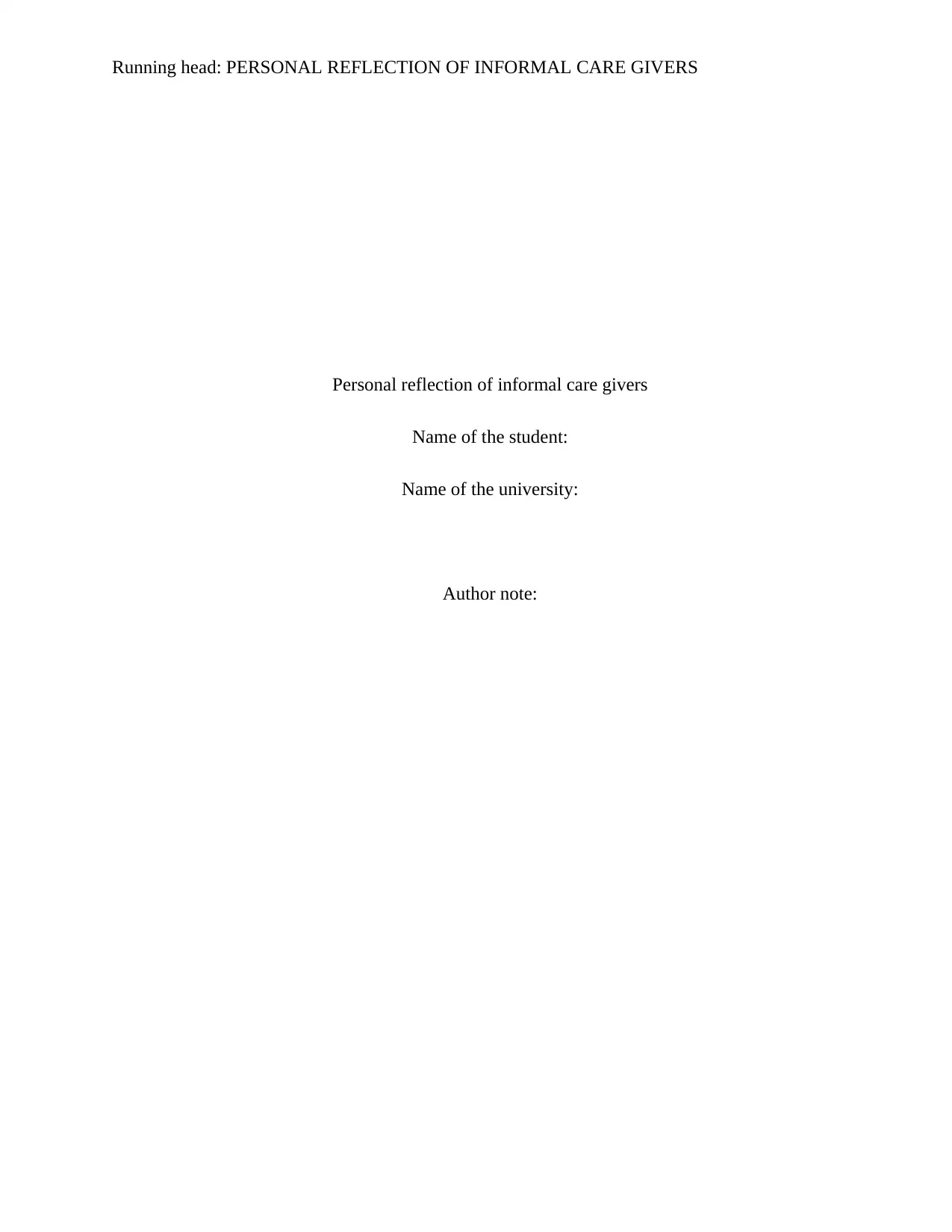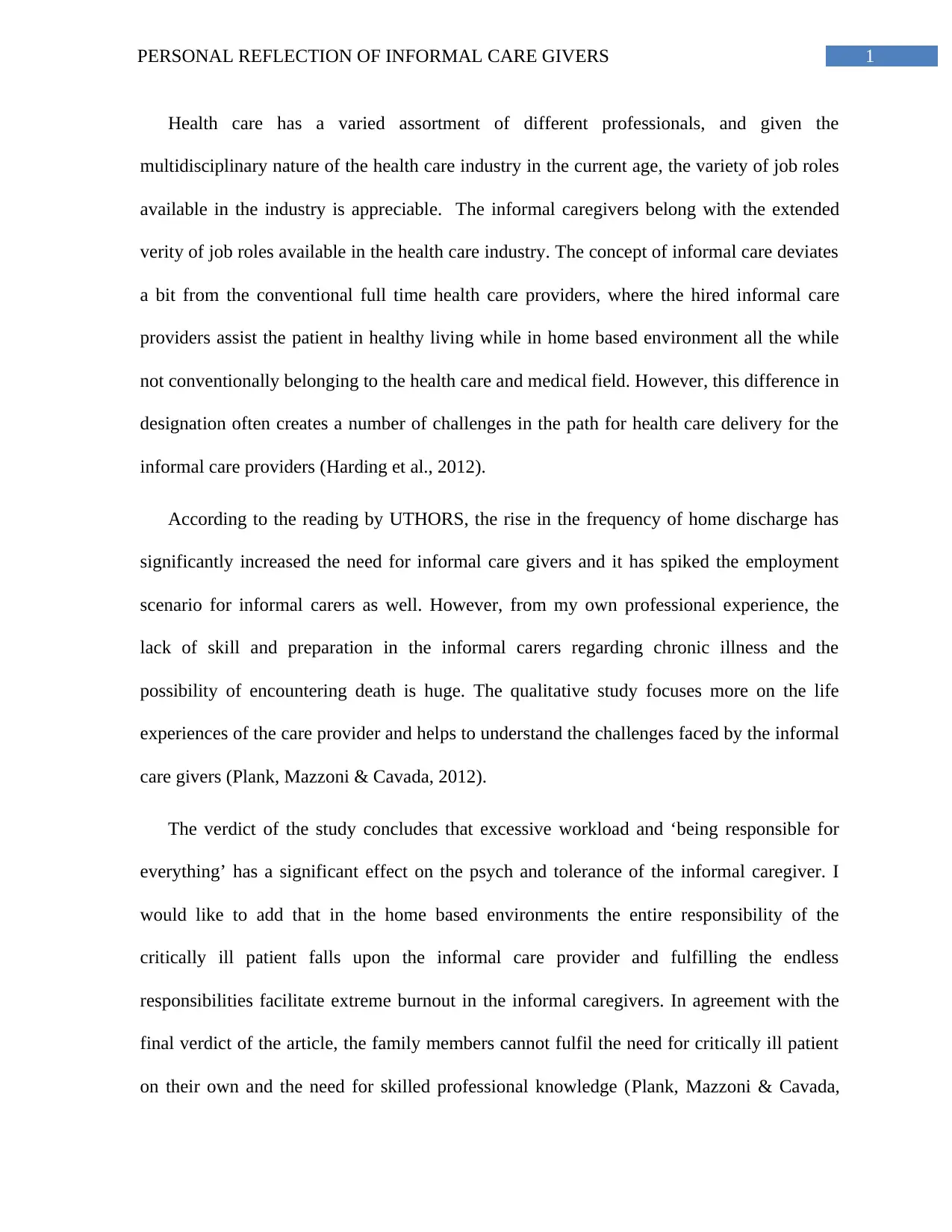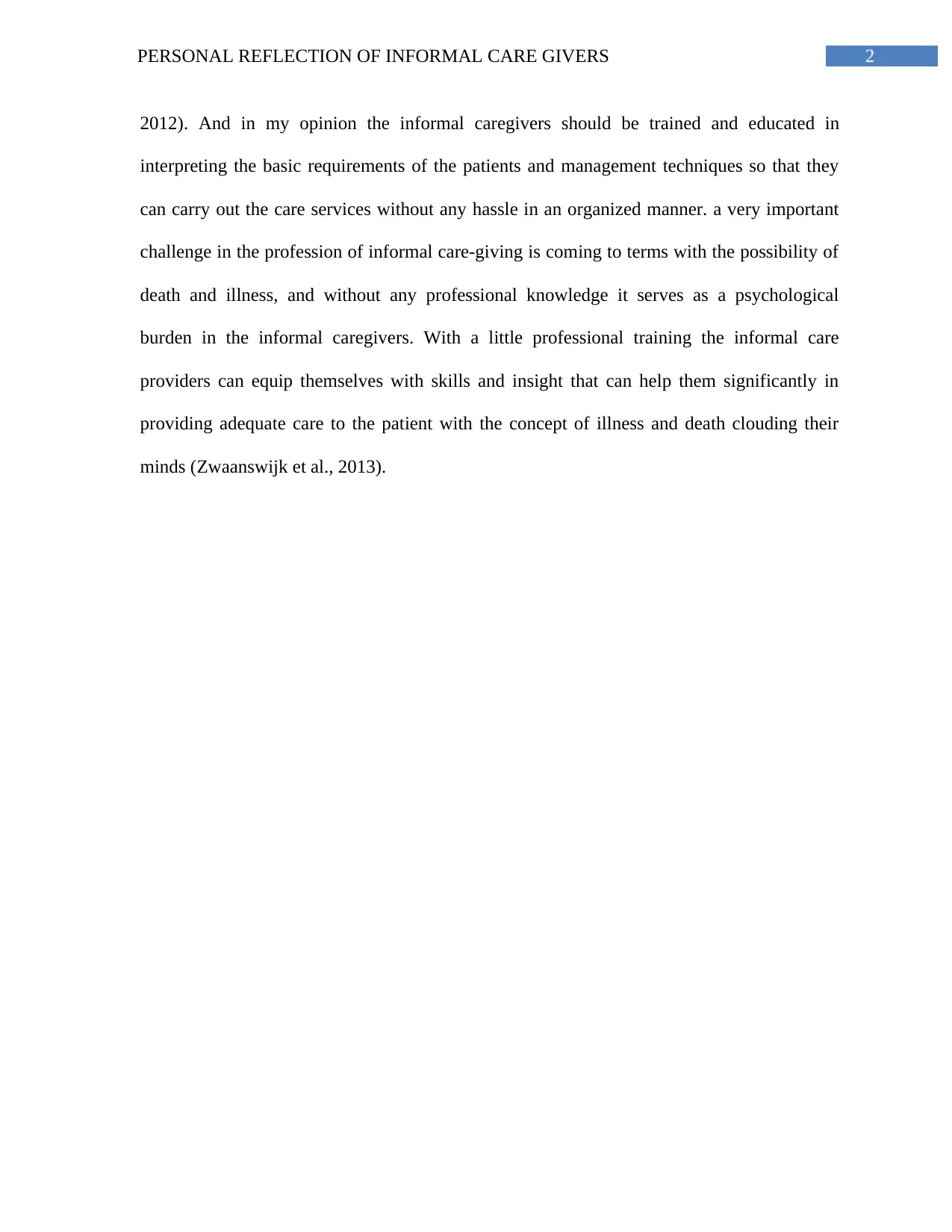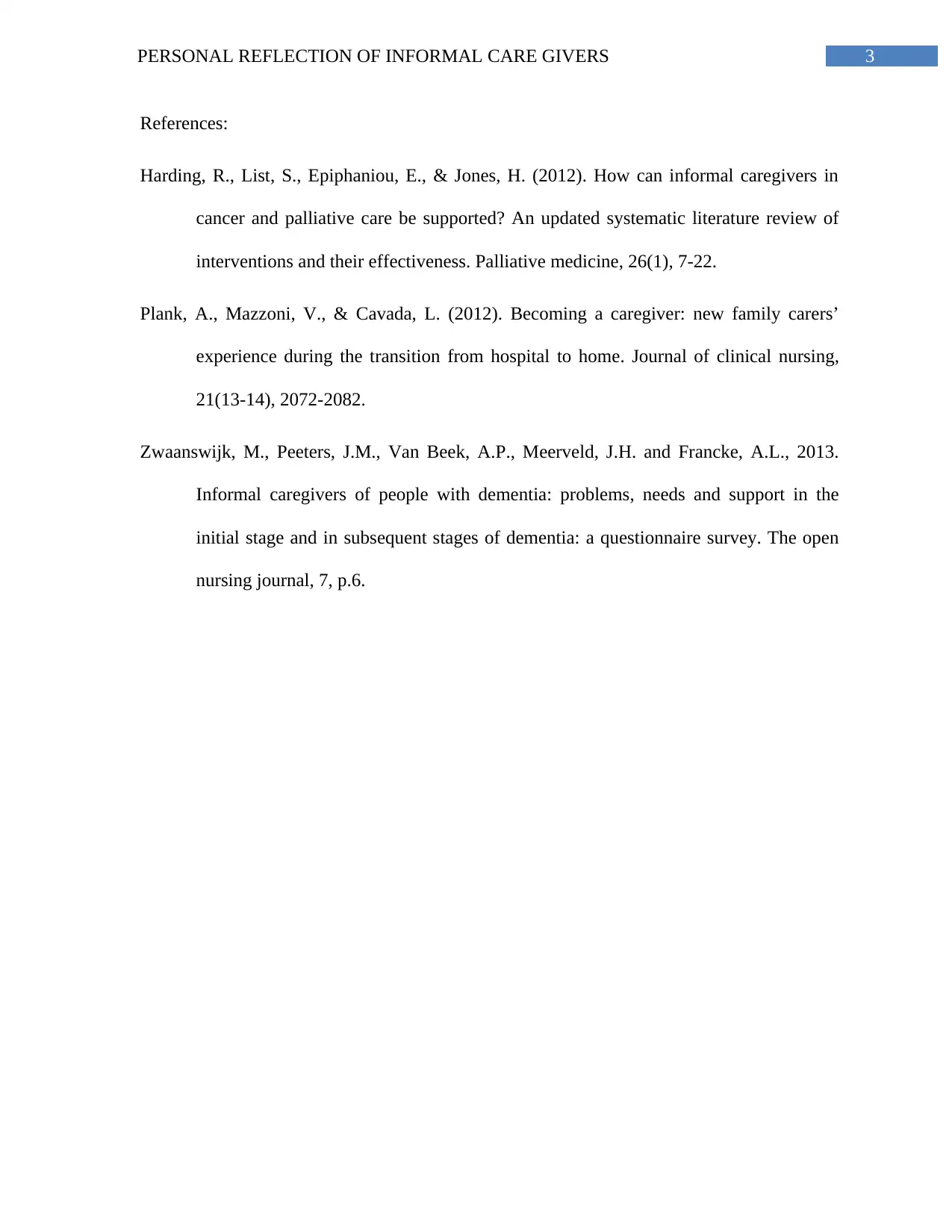Healthcare Report: Personal Reflection of Informal Caregivers
VerifiedAdded on 2020/05/11
|4
|666
|67
Report
AI Summary
This report is a personal reflection on the experiences of informal caregivers in healthcare, focusing on the challenges they face and the need for adequate training and support. The author discusses the increasing importance of informal caregivers due to the rise in home-based care, highlighting the potential for burnout and psychological burdens associated with the role, particularly in the context of chronic illness and end-of-life care. The report emphasizes the importance of professional training for informal caregivers to equip them with the skills and knowledge needed to provide effective care, manage patient needs, and address the emotional and psychological aspects of their responsibilities. The author references relevant literature to support the discussion, underscoring the critical need for a better understanding of the informal caregiver's role within the healthcare system and the necessity for interventions that can support their well-being and enhance their ability to provide quality patient care. The report concludes with a call for better training and support for informal caregivers.
1 out of 4











![[object Object]](/_next/static/media/star-bottom.7253800d.svg)